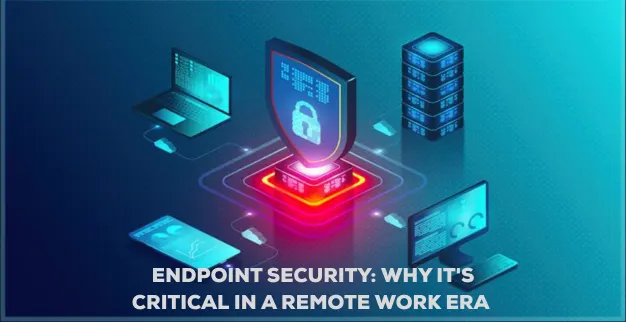Endpoint Security: Why It's Critical in a Remote Work Era
By:
Ganesan D
22 May 2025
Category:
End point Security
As the modern workforce continues to embrace remote and hybrid
work models, the importance of robust endpoint security has never
been more critical. Here’s why:
1. Expanded Attack Surface
With employees accessing company resources from various locations
and devices—laptops, tablets, and smartphones—the number of
vulnerable endpoints has increased dramatically. Each device is a
potential entry point for cyberattacks.
2. Weaker Network Perimeters
Traditional perimeter-based security (like firewalls at the
office) is no longer sufficient. Remote workers often use home
networks, public Wi-Fi, or unsecured routers, which lack
enterprise-level protection, making endpoints the frontline of
defense.
3. Rise in Sophisticated Threats
Cybercriminals have adapted to the remote work trend, targeting
endpoints with malware, ransomware, phishing, and zero-day
exploits. Without advanced endpoint protection, organizations are
easy targets.
4. Data Privacy and Compliance Risks
Endpoints often store or access sensitive data. A compromised
device could lead to data breaches, violating regulations like
GDPR, HIPAA, or CCPA, and causing legal and financial
repercussions.
5. Lack of User Awareness
Remote employees may not follow strict security protocols. They
might neglect software updates, use weak passwords, or fall for
phishing attempts. Endpoint security tools can help mitigate human
error with automated detection and response.
6. BYOD Challenges
Bring Your Own Device (BYOD) policies, common in remote work
settings, introduce devices not managed by IT. Without endpoint
protection, these devices can introduce threats into the corporate
network.
Conclusion
In a remote work era, every device is a potential threat vector.
Endpoint security is no longer optional—it is essential.
Organizations must deploy comprehensive solutions that include
antivirus, EDR (Endpoint Detection and Response), encryption, and
real-time monitoring to protect both data and operations in a
decentralized work environment.



